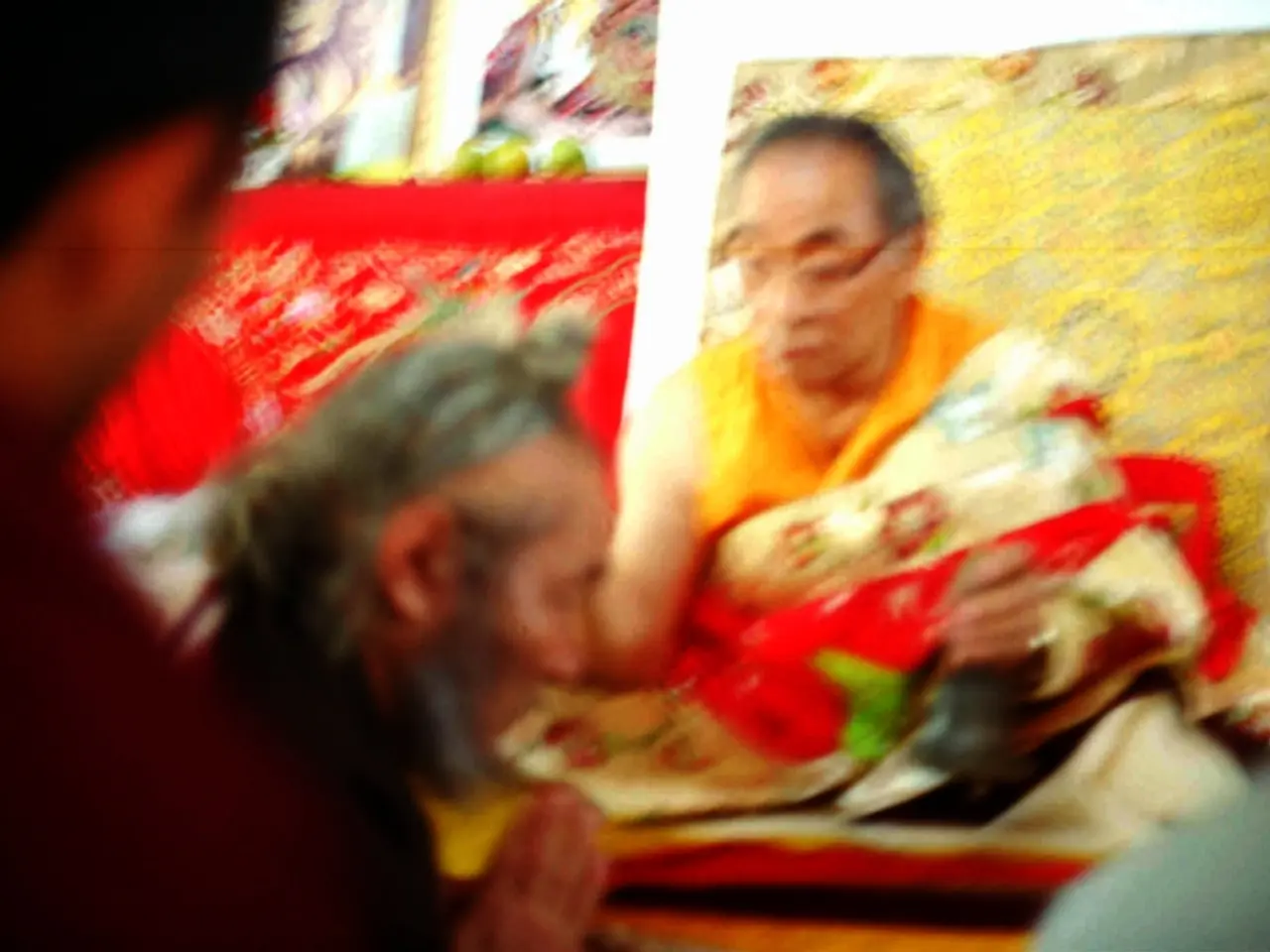Exploring the secret wisdom of contentment: Insights from the Dalai Lama on happiness, kindness, and life's meaning
The Dalai Lama's Perspective on Happiness: A Spiritual Approach to Inner Peace
The Dalai Lama, the spiritual leader of Tibetan Buddhism, offers a unique perspective on happiness that emphasises mental and spiritual training. According to the Dalai Lama, true happiness is not just about transient pleasure, but about an inner state of life that can be developed through mental and spiritual practices.
In his book, 'The Art of Happiness', co-authored with American psychologist Howard Cutler, the Dalai Lama discusses happiness as a journey of self-discovery and personal growth. He quotes, "If you think you are too small to make a difference, try sleeping with a mosquito," to emphasise that each person can have a significant impact on their environment.
The Dalai Lama believes that the basis of true and lasting happiness is an awareness of the interconnectedness of all life on our planet. He advocates for learning to want what one has and having gratitude for what one has, as opposed to seeking material possessions. He references the Buddhist text, the Dhammapada, and quotes, "Health is the greatest gift; contentment, the greatest wealth."
The Dalai Lama's teachings on happiness involve cultivating compassion, reducing self-centeredness, and understanding emptiness and dependent origination. These practices are aimed at overcoming suffering and its causes. He underscores the need to want what one has, promoting contentment through mental discipline.
Positive psychology, a branch of independent research that began in 1998 by American psychologist Martin Seligman, shares some similarities with the Dalai Lama's teachings. Its second wave, also known as PP 2.0, emphasises embracing and transforming suffering, and achieving balance between positive and negative experiences. It proposes that sustainable well-being requires courage to confront life’s hardships and learning from ancient wisdom traditions.
In summary, the Dalai Lama's spiritual view complements and enriches second-wave positive psychology. Both approaches advocate mental training and acceptance of suffering as essential pathways to genuine happiness. The Dalai Lama's teachings offer a profound and timeless wisdom that resonates with modern psychological research, providing a practical guide for individuals seeking inner peace and happiness.
For further reading, consider topics such as science and happiness, the Dalai Lama's life, 'The Art of Happiness' book, Buddhist view on happiness, positive psychology and Buddhism, mental training for happiness, lottery and happiness study, interconnectedness and well-being, Dalai Lama quotes on compassion, gratitude, and spiritual joy, and Dalai Lama happiness teachings.
[1] Cutler, H., & Dalai Lama. (1998). The Art of Happiness: A Handbook for Living. Riverhead Books. [2] Seligman, M. E. P. (2011). Flourish: A Visionary New Understanding of Happiness and Well-being. Simon and Schuster. [3] Haidt, J., & Kesebir, S. (2010). The Happiness Hypothesis: Finding Modern Truth in Ancient Wisdom. Basic Books. [4] Ryan, R. M., & Deci, E. L. (2017). Self-determination theory: Basic psychological needs in motivation, development, and wellness. Guilford Publications. [5] Dalai Lama. (2009). The Book of Joy: Lasting Happiness in a Changing World. Avery Publishing Group.
- The Dalai Lama's spiritual approach to inner peace extends to various aspects of life, including lifestyle, education-and-self-development, and personal-growth, as evidenced in his book 'The Art of Happiness', where he highlights the importance of mental training for lasting happiness.
- In contrast to fashion-and-beauty, food-and-drink, travel, cars, and shopping, the Dalai Lama encourages an awareness of the interconnectedness of all life on our planet, promoting contentment through gratitude and understanding emptiness, as a basis for true and lasting happiness.
- Relationships can benefit from the Dalai Lama's teachings, as cultivating compassion and reducing self-centeredness are key practices aimed at overcoming suffering and its causes, as outlined in his book 'The Book of Joy: Lasting Happiness in a Changing World'.
- Pets, like everyone else, can contribute to individuals' happiness, according to the Dalai Lama's perspective on happiness, as they have the capacity to bring joy and provide comfort, aligning with the need to want what one has and be content.
- Modern psychological research, particularly Positive Psychology and its second wave, shares similarities with the Dalai Lama's teachings, emphasizing embracing and transforming suffering and achieving balance between positive and negative experiences, as a pathway to genuine happiness and well-being.




